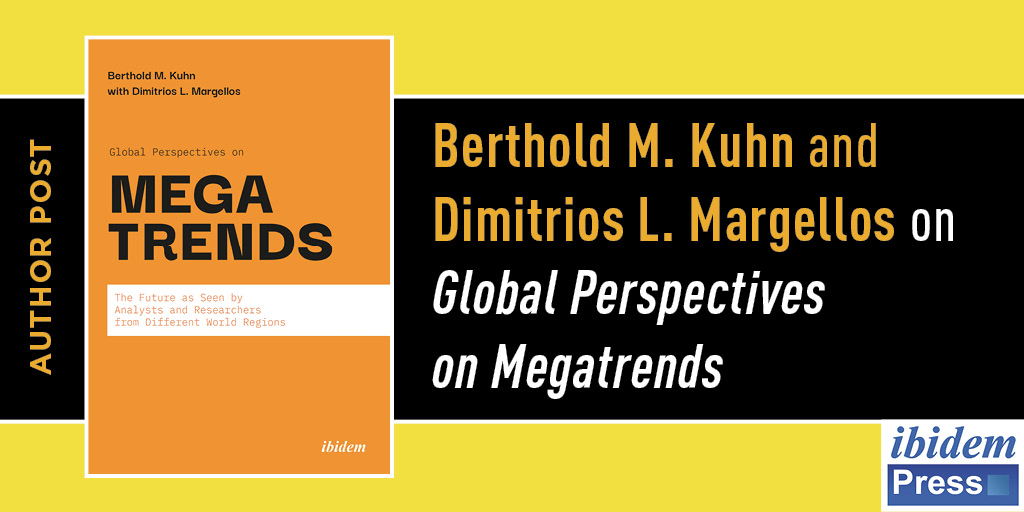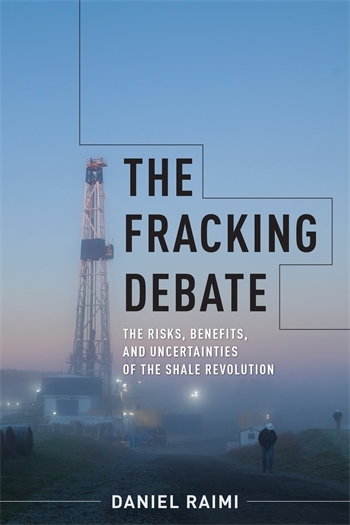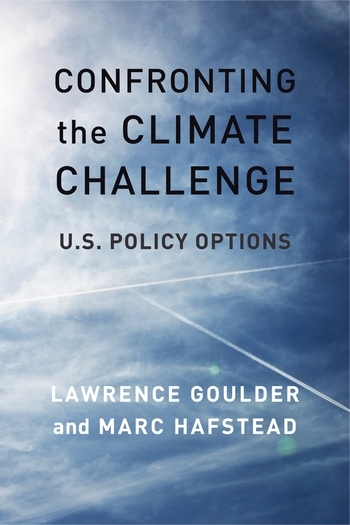Berthold M. Kuhn and Dimitrios L. Margellos on Global Perspectives on Megatrends

In Global Perspectives on Megatrends: The Future as Seen by Analysts and Researchers from Different World Regions, we, Berthold M. Kuhn and Dimitrios L. Margellos, present an analysis of twelve global trends shaping our future. In dialogue with renowned think tanks, we integrated more than thirty interviews with leading researchers, investors, and activists from different world regions. We heard about how young activists from the Fridays for Future movement are changing their approach to save the Earth from climate catastrophe and how Indian IT Experts, the Estonian E-Governance Academy, and a young activist from the Electronic Frontier Foundation think about opportunities and risks related to digitalization. We also dug into how the pandemic affected food markets in Africa, how inequality plays out in Bangladesh, and how a chief executive of a nonprofit organization in the Seychelles addresses sustainable tourism.
We expected that experts from different backgrounds would hold very different views on megatrends. While perspectives differed between think tanks and international experts, we were positively surprised by how many converging views we were able to collect on pressing issues such as the future of climate action, smart city development, sustainable finance, migration management, and the emergence of a multipolar world order. Our interview partners all agreed on the broadening and deepening of climate action across industries and on the importance of emission trading, and they pointed to the difficulties in achieving progress at the level of intergovernmental negotiations.
We also sought to go beyond conventional megatrend analysis and not limit ourselves to technology, business, or population trends. Instead, we adopted a thorough selection process and eventually prioritized twelve trends according to attention paid to them by researchers, policy makers, the investment community, the media, and social movements. These twelve trends were deemed to be megatrends: climate action and sustainability; digitization; inequality demography; urbanization and smart cities; health and nutrition; the green economy; sustainable finance; multipolar world order and the future of multilateralism; democracy and governance innovations; civilizational developments (diversity, individualization and loneliness, gender shift, and identity politics); and migration.
…we were positively surprised by how many converging views we were able to collect on pressing issues such as the future of climate action, smart city development, sustainable finance, migration management, and the emergence of a multipolar world order.
The intersections of megatrends cannot be overstated. Some are even contingent on the existence of others—for example, sustainable finance clearly stems from climate action—while others, such as the green economy, are based on an understanding that inequality during times of climate crisis must not be neglected.
Megatrends are, in essence, larger than life; they are inescapable. Thus, they affect almost every aspect of professional and private life. Climate change is the ominous threat that looms over all of us as we make seemingly inconsequential decisions on what to purchase in our everyday lives; at the same time, it is disrupting entire industries and businesses, such as the fossil fuel and construction sectors, often to the point of “creative destruction.” It is a trend so large that it can give birth to new economic paradigms like degrowth, the green economy, the circular economy, and it will surely redefine other trends such as migration, with billions of people expected to be displaced over the coming decades.
From creating one-toone digital copies of smart cities to AIs that render the Turing test a relic of the past, digitization is also pushing the boundaries of what we once thought was possible. As we traverse the age of social media, whereby our acclimatization to the reality of a digital world and the myriad of politically and socially existential questions it poses sees us struggle to keep up with our technological advancements, we begin to realize that the unrelenting force of digitization is not always harnessed for good.
The intersections of megatrends cannot be overstated.
Similarly, we pay great attention to social megatrends, such as inequality, as we believe the future of our societies to be defined by the people’s will. Though many of the great consulting firms shy away from facing the reality of unequal states of living and the effect it has on our future, there is no looking away from the massive global unrest from Ecuador all the way to Sri Lanka.
We consider this book an essential contribution to the literature on megatrends and future research, as it presents analyses on megatrends from the perspective of different countries and global regions. Unlike some other global megatrend projects, it does not take a U.S.- or Eurocentric view of major changes, even though experts from both the United States and Europe have their say in the book.
The book also strikes a good balance between fact-based megatrend research and strategic foresight analysis. It concludes with a chapter on visions for the world in 2030 and presents a summary of a vision talk involving three experts researching nothing less than the future of humanity.







